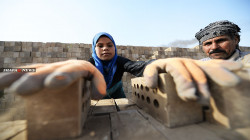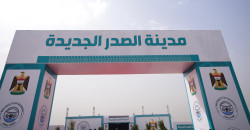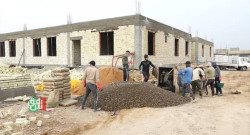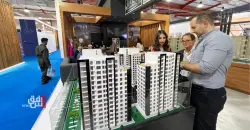Building hope: Housing crisis in Iraq
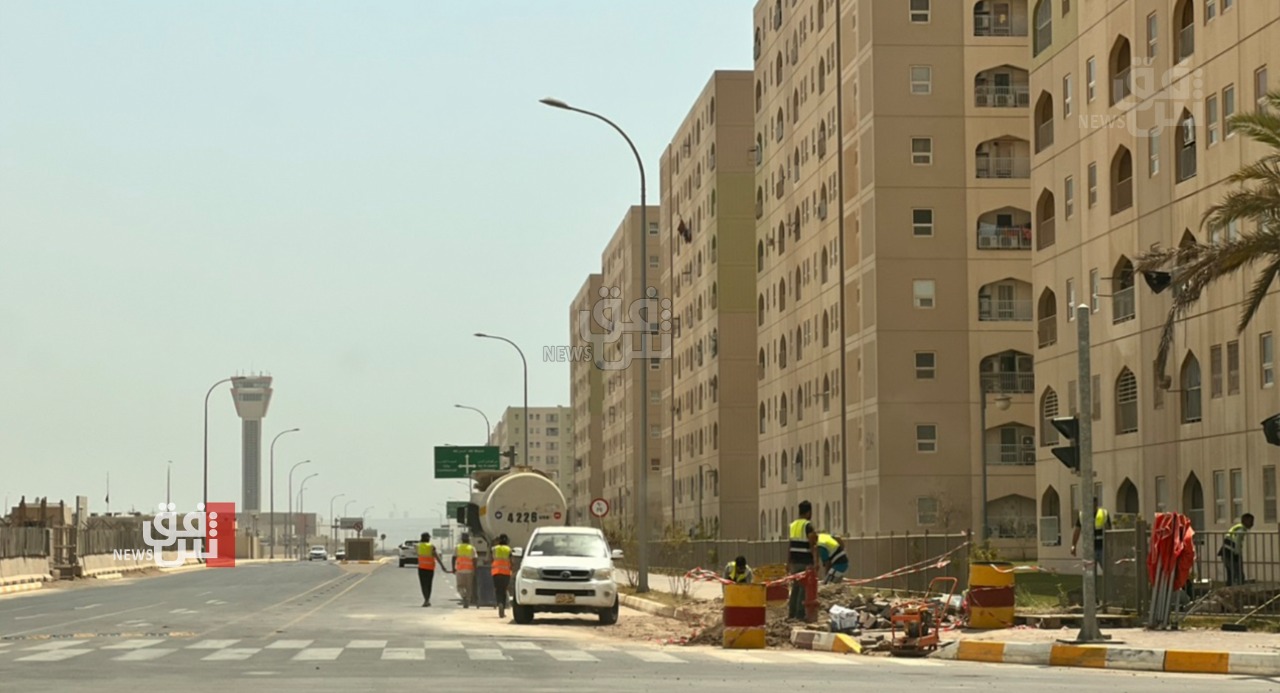
Shafaq News/ Many Iraqis, particularly those from middle and lower socioeconomic classes, encounter obstacles when acquiring residential properties due to soaring prices. Despite ongoing construction efforts for cities and housing complexes throughout the Iraqi governorates, the cost remains out of reach for most of the population, highlighting a persistent affordability gap.
Further, the population's struggle to afford homes has almost doubled since 2003, forcing millions to settle in slums.
According to the Ministry of Planning, in 2021, 3 million citizens live in 4,000 slums and irregular settlements, with over 1,000 slums only in Baghdad's capital.
52 new residential cities are underway
Iraq needs to develop between 3 to 3.5 million housing units to tackle the persistent crisis in this sector. To address this challenge, the government has initiated the construction of 52 residential cities in central and southern governorates, alongside housing complexes and offering diverse loans for building, renovating, and purchasing residential units. These measures are characterized as "radical" in resolving the "dilemma" affecting millions of citizens nationwide."
In this regard, the Ministry of Planning has affirmed that Iraq has grappled with a housing crisis for decades, attributed to the lack of large-scale projects meeting citizens' housing requirements. This challenge is compounded by a notable annual population increase, contributing to an estimated gap of approximately three million housing units, as stated by the ministry's spokesperson, Abdul Zahra Al-Hindawi.
Speaking to Shafaq News Agency, Al-Hindawi further explained that "the Ministry of Planning, within the framework of the Five-Year Development Plan 2024-2028, has prioritized the housing sector and its current needs. The planned initiatives will be realized through projects, policies, and procedures to establish new residential cities across Iraq. These initiatives are already underway in Baghdad and several other governorates."
Al-Hindawi expressed optimism that 'the strategy of tackling housing challenges through establishing new residential cities across all governorates will persist, significantly "alleviating and addressing a substantial portion of the housing crisis." Additionally, it will create "favorable investment prospects in the housing sector, attracting investment firms interested in developing housing complexes."
Al-Hindawi explained that the increase in property prices is closely tied to the completion of housing units, following the principles of supply and demand. As more housing units become available, prices tend to decrease, and conversely, prices rise when supply diminishes.
Furthermore, "the government's committed policy within the development plans, particularly in constructing residential cities, will foster price stability and meet the housing demand in Iraq."
Over the past five years, authorities have been actively addressing the housing crisis, aligning plans with the country's population exceeding 43 million. Additionally, efforts have focused on facilitating citizens' access to loans at reasonable interest rates.
"To address Iraq's housing crisis and mitigate rising property prices, the Ministry of Construction and Housing unveiled several measures aimed at reducing prices by establishing 52 new residential cities nationwide.
According to the ministry's spokesperson, Istabraq Sabah, in a previous statement to Shafaq News Agency, "There are approximately 190,000 housing units in Al-Jawahiri, Al-Wardi, and Al-Ghazlani cities alone. This initiative will significantly alleviate the housing crisis considering numerous other cities in the central and southern governorate."
Sabah pointed out that addressing the housing crisis extends beyond residential cities, with the Housing Department also developing housing complexes. Moreover, the Real Estate Housing Fund disburses thousands of loans monthly for construction, renovation, and property purchases, alongside thousands of loans launched monthly by the Real Estate Bank under the Ministry of Finance for purchasing residential units.
Hence, these loans, combined with the efforts of the Housing Fund, Housing Department complexes, and new residential cities, collectively provide practical solutions that effectively reduce Iraq's housing gap, which, as stated by the ministry's spokesperson, is estimated at around 3 to 3.5 million housing units.
However, Sabah underscored the ongoing population growth, noting that "with the need for over three million housing units, population growth adds 1 to 1.2 million people annually. Considering household sizes, this highlights an additional annual need for approximately 160,000 housing units to meet housing demand."
What is the solution?
Member of the Parliamentary Economy and Investment Committee, Suzan Mansour, highlighted that the emphasis on housing investment is driven by its substantial profitability, reaching up to 300%.
"Despite offering free land to investors and essential facilities to address the housing crisis, the challenge persists as prices remain unaffordable for some individuals."
Speaking to Shafaq News Agency, Mansour added that "there are currently over five residential cities being implemented, and we trust that these projects are in capable hands with responsible investors. Despite Iraq's financial resources and economic development, there are still individuals living below the poverty line and others in inadequate housing conditions. Thus, we urge that the pricing of these cities be considerate and accessible to them."
Economic expert Samir Al-Nasiri agreed that Iraq requires more than three million housing units.
"In light of the government's investment plan and the National Investment Authority's initiatives, affordable cities will be constructed and allocated to low-income individuals. Luxurious and expensive complexes do not meet the crucial demand from the general population"'
Al-Nasiri stressed, "While there's merit in developing residential complexes for high-income earners, the government must prioritize providing suitable housing for low-income individuals, who constitute most of the population. This approach will help mitigate the escalation of property prices in Iraq.'"
He said that the investment map outlined in PM Mohammed Shia Al-Sudani's government's agenda is focused on economic development and achieving sustainable development goals as per the upcoming Five-Year Plan from 2024 to 2028.
"This plan, currently under development by the Ministry of Planning in collaboration with the government, international organizations, and relevant entities, has been allocated budgetary resources. The private sector will play a vital role in implementing sustainable development goals through financing and active participation."
Al-Nasiri elaborated that "a crucial aspect of this investment map is the execution of projects across more than ten economic sectors, including higher education, healthcare, energy, education, agriculture, industry, and others. However, the focal point lies in the construction and building sector, particularly in developing residential complexes."
